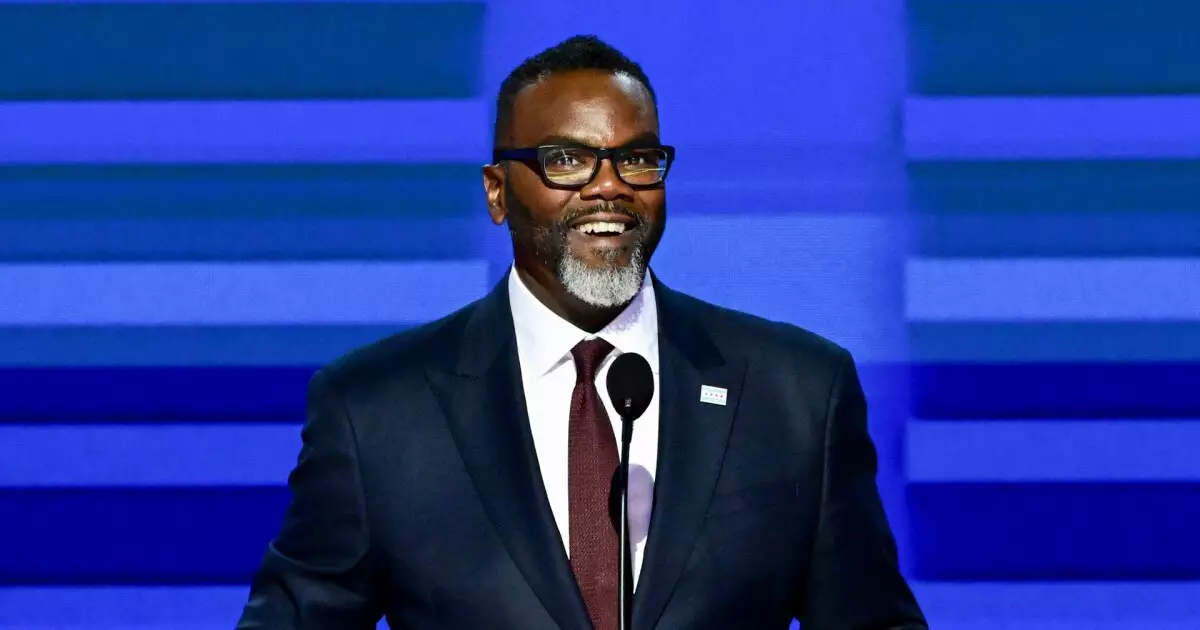The Chicago City Council has made headlines recently with the approval of a comprehensive strategy to refinance an astounding $1.5 billion in debt. This decision follows a previous postponement during an Oct. 9 meeting and is aimed at addressing the city’s ongoing financial challenges. With plans to issue bonds in the fourth quarter of 2024, roughly $850 million of the general obligation (GO) bonds will become callable on January 1. The city is also looking to implement a tender offer for around $500 million of those bonds, which is intended to streamline its debt management process.
A significant aspect of this refinancing agreement is the anticipated reduction in the average interest rate on the refinanced debt—from 5.62% down to a projected 3.75%. Mayor Brandon Johnson’s administration has heralded this move as a mark of prudent fiscal management. The mayor has stated that this deal is not just about numbers; it’s part of a broader commitment to maintain fiscal integrity and alleviate some of the budgetary pressures facing the city.
The recent vote in favor of the refinancing, sanctioned by a 35-12 decision, was not without dissent. A visible delay in the process during earlier discussions pointed to underlying tensions among council members. Some aldermen sought to examine the details further, expressing concerns that this refinancing could signal deeper systemic issues in the city’s financial health. Municipal Market Analytics has voiced apprehensions regarding the city’s dwindling financial flexibility. Their observations suggest that the city’s trajectory towards improved credit ratings may be stalling, raising the question of whether Chicago has truly learned its lessons from past fiscal mismanagement.
Alderman William Conway, defending the fiscal soundness of the deal, emphasized that modifications to the ordinance would guarantee funds would strictly facilitate cost-saving refinancing. However, his assertions were met with skepticism from other council members like Alderman Raymond Lopez. Lopez highlighted the potential for mismanagement of funds and voiced concerns about the absence of dialogue between the finance team and those questioning the deal. This tension underscores a critical point: transparency and communication remain paramount whenever public funds are at stake.
The city’s Chief Financial Officer, Jill Jaworski, has steadfastly insisted that the measure’s strict language ensures funds are exclusively allocated for refinancing purposes. This declaration aims to quell concerns regarding potential misuse of funds for operational expenses. However, Illinois Comptroller Susana Mendoza has emphasized the need for stringent oversight, warning against any language that might allow for loopholes in the ordinance.
Mendoza’s comments resonate deeply in this environment, where public officials have a responsibility to be stewards of taxpayer dollars. Critics have argued that a lack of transparency surrounding the estimated savings of $110 million warrants further scrutiny. As Mendoza aptly points out, the financial wellbeing of the citizens is often overshadowed by a lack of clarity regarding large financial maneuvers.
Experts like Lisa Washburn from Municipal Market Analytics argue that while this refinancing could yield short-term benefits, it raises long-term concerns about Chicago’s financial stability. The city has historically resorted to one-time financial strategies to bridge ongoing deficits, which may lead to a cycle of postponed fiscal responsibility. This cyclical approach places future administrations in precarious situations where they may be forced to make difficult decisions, ultimately pushing financial burdens further down the line.
Moreover, the potential echo of “scoop-and-toss” strategies—where future debt payments are extended—looms large in the background of these discussions. Many finance officials have strained to phase out these practices, but as Washburn notes, without recurring solutions to maintain budgetary discipline, the city risks missing the mark on sustainable fiscal health.
Chicago’s credit ratings illustrate both improvement and lingering challenges. On one hand, Fitch Ratings recognized the city’s efforts by upgrading its issuer default and general obligation ratings, indicating a more favorable outlook. On the other hand, Moody’s kept its Baa3 rating, demonstrating that confidence in Chicago’s financial structure isn’t entirely solid.
As the city navigates this complicated landscape of debt management and refinancing, the actions it takes today will resonate for years to come. Regulatory bodies and citizens alike will be watching closely to gauge the efficacy of this plan—and whether it aligns with the greater goal of establishing a financially sustainable future for Chicago.
While the refinanced debt could provide short-term relief and cost savings, the real challenge lies in ensuring that this approach doesn’t merely kick the can down the road. It is the responsibility of all parties involved to ensure that transparency, communication, and a commitment to long-term fiscal health guide these critical decisions. The road ahead remains uncertain, but a cautious and informed approach may lead to a more stable financial future for the city.

